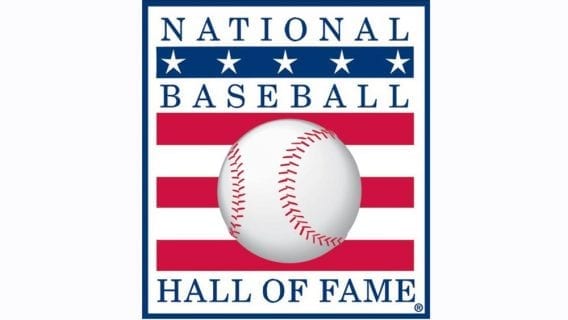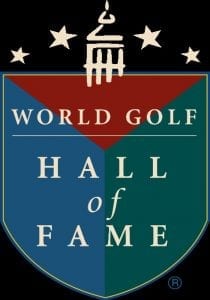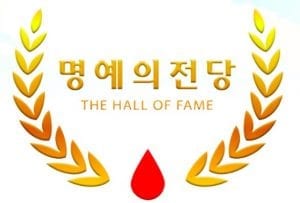Have you heard of ‘the Hall of Fame’? The Hall of Fame is a term that began to be used in the Anglosphere, and when you search Google, it is ‘a museum, a group that was established to commemorate people who have performed well in one area, such as sports and art(source: Wikipedia). In short, it is a memorial built for those who have accomplished outstanding things. A good example is the national baseball hall of fame(MLB), World Golf Hall of Fame of LPGA/PGA in the United States. Park Se-ri and Park In-bee of South Korea are also in the World Golf Hall of Fame.



The word ‘Hall of Fame’ is often found in South Korea, too. KBS TV SHOW ‘The Golden Bell Challenge’ quiz show also uses the concept of “Hall of Fame,” which is the list of the people who took all the quizzes up to number 50. A trademark infringement lawsuit has been filed around this frequently used term, ‘the Hall of Fame’.
Plaintiff is a company that operates e-commerce and related distribution business and signed an exclusive license agreement for the ‘Hall of Fame’ shown below.


Defendant is an apparel brand whose main business is the sale of Internet shopping malls. The defendant used the emblem containing the word “Hall of Fame” on the site and on the Internet open market, M. (Example: Hall of Fame XXX Trench Coat, etc.) The plaintiff hereby filed a claim for damages, saying that the defendant used the same or similar marks and these actions violated his or her exclusive license.
In order for a trademark infringement to be recognized, its use must correspond to “trademark use.”
“If another’s mark is used to mark the origin of a product, which is an essential function of the trademark, it should be considered that it is used as a trademark… Whether or not a trademark is used as a trademark should be a combination of the relationship with the product, the mode of use of the trademark, the well-known reputation of the trademark, and the intention and use of the user. Therefore, whether or not the mark is used as an identification mark of a commodity shall be judged comprehensively. ” (darts-587-020-H-ko)
The plaintiff has made the following claims to prove that the defendant’s use of the word ‘Hall of fame’ is used ‘as a trademark’: ① the word ‘Hall of Fame’ was placed in front of the defendants’ products to convince the consumer that the plaintiff and the defendant company made an agreement to use the mark, ② in addition to the word ‘Hall of Fame’, the words ‘Best’ could be used to convey the same meaning, ③ the Hall of Fame was recognized for its recognition in the process of filing and registering the trademark.
However, the court rejected the plaintiff’s claim for the following reasons: first, ① ‘Hall of Fame’ is a word that is widely used in the e-commerce industry, ② defendants used the word ‘Hall of Fame’ only in front of some products, ③the word ‘Hall of Fame’ is not widely recognized among consumers as the source of indication of the plaintiff in relation to a particular product or business.
“’Hall of Fame’ is the term used by the e-commerce industry, and it is a term extensively used in the sale of merchandise, and refers to “a product category that is a collection of popular products, high quality products, or products that have received good reviews from customers”… It is natural to see that consumers who purchase goods marked with ‘Hall of Fame’ on the Internet get intuition that the product belongs to “popular items, high quality products or product categories that have been well received by customers.”… In the defendant shopping mall, the product name is described as ‘product specific description’ + product type.’ As a general consumer who sees the mark, one can naturally feel it in the same sense as “a popular product, a quality product, or a product well-received by consumers. There is no data to admit that a registration service mark this case is a mark that indicates the origin of the plaintiffs in relation to the designated service industry or designated goods.” (darts-587-020-H-ko)
Therefore, trademark infringement on the ‘Hall of Fame’ has been denied. This is the opposite of the court’s decision about Hanmi Pharmaceutical’s ‘팔팔(pal-pal)’ tablet (written in last newsletter). The word ‘팔팔(palpal)’ is also often used in South Korea to mean ‘to be energetic’. Hanmi Pharm, which sells an erectile dysfunction treatment drug ‘팔팔’, filed a lawsuit against a dietary supplement ‘氣八八(기팔팔)’, claiming that it infringes trademark rights. Intellectual Property Trial and Appeal Board of KIPO judged that it is not appropriate to monopolize the word ‘팔팔(palpal)’ to a specific person or company (darts-378-569-G-ko). However, the court overturned the conclusion of the Intellectual Property Trial and Appeal Board of KIPO and concluded that the use of the trademark ‘氣八八(기팔팔)’ violates the plaintiff’s trademark rights because of following reasons: ① the similarities of the two brands in question were recognized because they were similar in concept and ② the domestic consumer is well recognized that Hanmi Pharm is the owner of the trademark ‘팔팔(palpal)’. (darts-783-875-H-ko)
Words that are often used in everyday life and have positive meanings are often used as trademarks because of their familiarity and the positive association effect that consumers will hear when they hear them. However, it is difficult to predict whether a court will admit or not admit ‘distinction’ for the words in specific cases. Therefore, we will need to see more cases and analyses of them.





